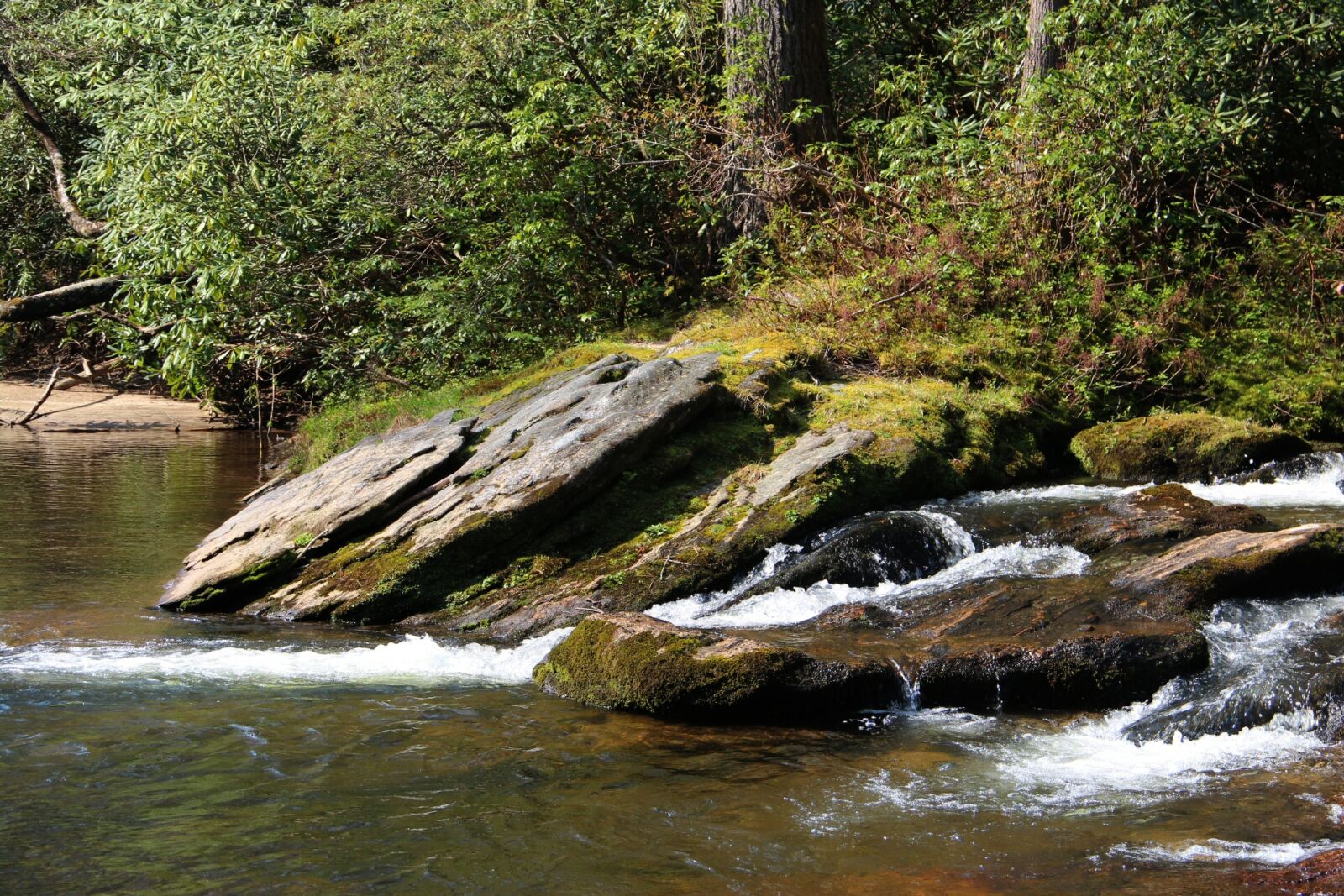The Pisgah National Forest is a land of mile-high peaks, cascading waterfalls and heavily forested slopes. With more than 500,000 acres, the Pisgah is primarily a hardwood forest with whitewater rivers, waterfalls and hundreds of miles of trails.
A remarkable historical note for the Pisgah Forest is that it is home of the first tract of land purchased under the Weeks Act of 1911 which led to the creation of National Forests in the eastern United States. It is home to the first school of forestry in the United States, now preserved at the Cradle of Forestry in America historic site, and claims two of the first designated Wilderness Areas in the east (Linville Gorge and Shining Rock).
The Nantahala National Forest lies in the mountains and valleys of southwestern North Carolina. Elevations in the Nantahala National Forest range from 5,800 feet at Lone Bald in Jackson County to 1,200 feet in Cherokee County along Hiwassee River below Appalachian Lake Dam. “Nantahala” is a Cherokee word meaning “land of the noon day sun,” a fitting name for the Nantahala Gorge, where the sun only reaches to the valley floor at midday. With over a half million acres, the Nantahala is the largest of the four National Forests in North Carolina.

Photo courtesy of Jeff Clark
Nantahala National ForestCombined, the Nantahala and the Pisgah National Forests, scattered along the eastern edge of the mountains of western North Carolina, offer visitors an unparalleled variety of opportunities for outdoor recreation and enjoying the natural beauty of these ancient mountains.
A more modern note of significance is that the U.S. Forest Service is currently revising the Nantahala-Pisgah National Forest Land and Resource Management Plan—which will guide management of the Forests for approximately the next 15 years.
The NFF has been asked to provide support to strengthen collaborative engagement in the Nantahala and Pisgah Land and Resource Management Plan revision effort. The NFF will provide assistance through assessment and process design, meeting logistics and facilitation, collaboration-skill building, knowledge sharing and capacity building.
This collaborative hopes to use innovative and inclusive public engagement for the plan revision effort. The Forest Service is seeking assistance and coordination to build its capacity to develop a broadly supported plan that will serve the needs of the western North Carolina community and the American public.
The Forest Service and the NFF will gain valuable experience in the theory and practice of collaborative problem solving and strategic planning with diverse stakeholders working across ecosystems and landscapes. The collaborative project will strive to build consensus and agreement between stakeholders engaged in development of the plan; increase learning between these groups; build social license for plan implementation; and move forward interests for both the Forest Service and the agency’s partners.
Click here get involved or learn more about the Forest Plan Revision Process.

